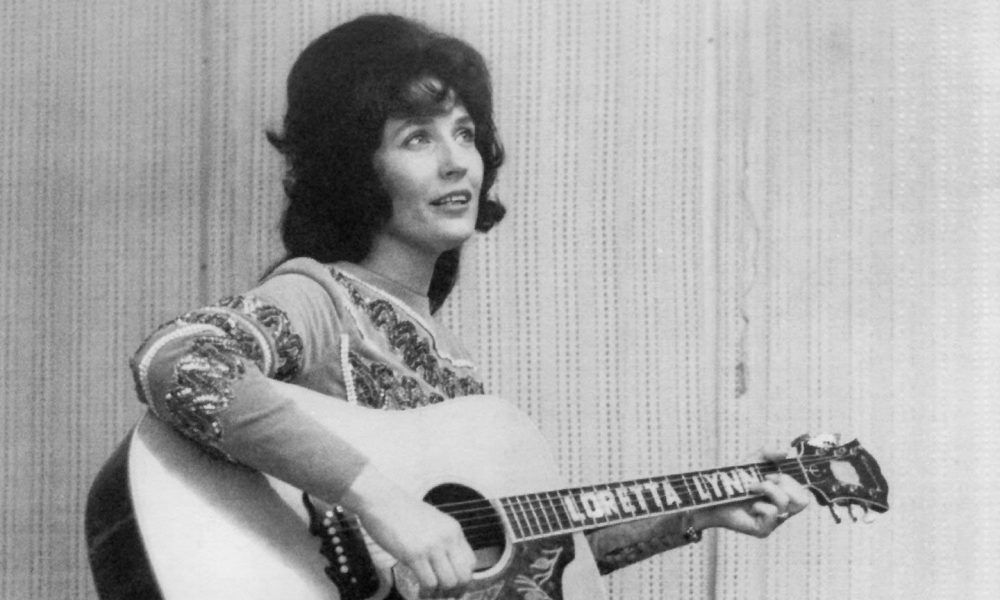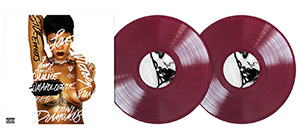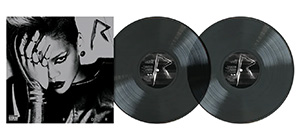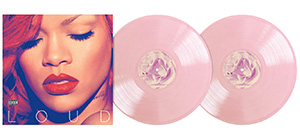‘Don’t Come Home A-Drinkin’’: Loretta Lynn’s Feminist Anthem
Continuing Loretta’s bold habit of saying the unsayable, ‘Don’t Come Home A-Drinkin’ (With Lovin’ On Your Mind)’ was a landmark song in country music.

Even if Loretta Lynn had been the sort of artist to record unchallenging material, what happened to her in 1967 would have been a landmark in country music.
On the February 11 chart, “Don’t Come Home A-Drinkin’ (With Lovin’ On Your Mind)” became her first No.1 single. Beyond that, it was a courageous feminist anthem in a male-dominated genre, and, even more unusually, it was the first chart-topping song written by a female artist herself. The song was penned by Lynn with her sister and later fellow-hitmaker Peggy Sue Wright.
Loretta had been placing songs on the country listings for more than six years by the time of the Decca single’s release, and had major hits such as 1962’s “Success,” 1964’s “Happy Birthday,” and the following year’s “Blue Kentucky Girl.” During 1966, as she began to take greater creative control over her work, Lynn’s name started to appear ever more frequently as a writer.
She had credits on five of the 12 songs on the You Ain’t Woman Enough album, released in September. One of those was the title track, which took her closer than ever before to the country top spot when it spent two weeks at No.2, second only to David Houston’s “Almost Persuaded.”
Saying what needed saying
Sessions for Lynn’s next album began in July 1966 at Bradley’s Barn, producer Owen Bradley’s headquarters in Mount Juliet, Tennessee. “Don’t Come Home A-Drinkin’ (With Lovin’ On Your Mind)’, released as a single on October 3, continued Lynn’s bold habit of saying the unsayable, in a skilfully palatable way that still hooked country radio.
This time, she was calling out men who arrived home from a night out (without their wives) and still expected their “marital rights.” Eyebrows were raised, but Lynn, 31 at the time of recording, stuck to her guns, continued to sing what needed singing and became an inspiration to generations of female country artists.
The artist had her own experience of the subject from her hard-drinking husband, but based the song more on the similar troubles that her sister was enduring. “I’ve always had this feeling with Peggy that I am kind of inside her head,” Loretta wrote in the book Honky Tonk Girl: My Life In Lyrics. “Maybe it’s because she means so much to me. We can look at each other and know what the other is thinking. Sometimes it’s not good to be like that, but when the song was finished, we both thought it was great.”
‘I was just singing about how I felt’
Billboard’s review of the single rather skated around the subject, but was approving all the same, and certainly accurate. “Fine marriage of lyric, melody and performance in this bitter-sweet country tune should carry it to the top,” wrote the magazine. The single did indeed spend a week at No.1, taking over from Jack Greene’s “There Goes My Everything” in the very week that Lynn’s Don’t Come Home A-Drinkin’… album also hit the top spot.
In the liner notes for her Honky Tonk Girl box set, Lynn was typically forthright and amusing about her songwriting style. “I wasn’t trying to change anything,” she said. “I was just singing about how I felt about things. I liked to play around with words. ‘Don’t Come Home A-Drinkin’ (With Lovin’ On Your Mind)’ can go both ways. It could be ‘Don’t Come Home A-Lovin’ (With Drinkin’ On Your Mind).’
“I like to be on the woman’s side, but I like to be on the man’s side, too,” she continued. “I never went out to put a man down in anything I’ve ever done. Men sometimes forget about a woman, especially if they drink. Sometimes a woman’s gotta say, ‘These boots are made for walkin’/One of these days these boots are gonna walk all over you.’”
An answer record…by Loretta’s brother
One lesser-known fact that underlines the impact of the song is that it inspired an answer record. Jay Lee Webb, also signed to Decca, reached No.37 on the country chart in 1967 with the confrontational response “I Come Home A-Drinkin’ (To A Worn-Out Wife Like You).” Perhaps Webb’s boldness was explained in part by the fact that he was Loretta’s real-life brother.
When the CMA Awards were inaugurated in 1967, Lynn became the first winner of the Female Vocalist Of The Year category, in a ceremony otherwise completely dominated by men. “Don’t Come Home A-Drinkin’” had opened plenty of doors.
Buy or stream “Don’t Come Home A-Drinkin’ (With Lovin’ On Your Mind)” on Loretta Lynn’s Gold compilation.










